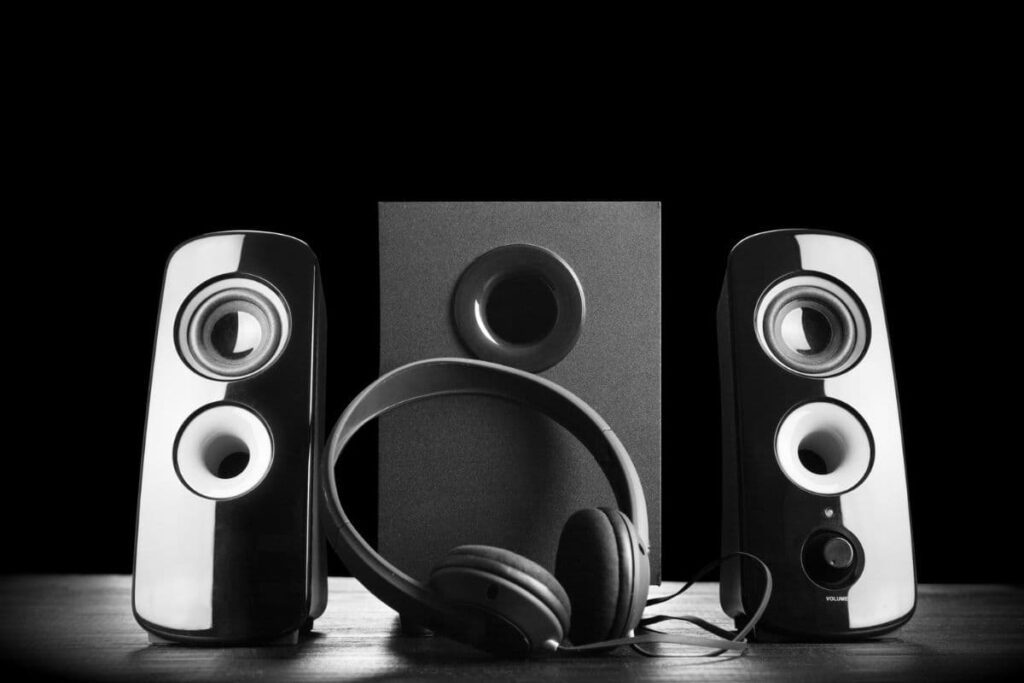Headphones are an essential item for any music lover. While most people aren’t fussed about the details, a true audiophile wants to get the most out of their investment, and one of the details that always comes up when purchasing headphones is impedance. Does it affect sound quality in any noticeable way?
Impedance doesn’t affect sound quality, but high-impedance headphones imply higher-quality drivers, which will create a better sound. If you don’t match high-impedance headphones with a powerful enough amplifier, you might get poor sound quality.
Even if you’re not an audiophile, this is valuable information to keep in the back of your mind when selecting your next pair of headphones. Read on if you want to know more about headphone impedance and how it will affect your listening experience, read on.
Table of Contents
- How Impedance Affects Headphones
- When to Use an Amplifier
- Are High-Impedance Headphones Worth It?
- Do You Need a DAC?
- Conclusion

How Impedance Affects Headphones
Impedance is a value expressed in ohms (Ω). You may have seen these values on some speakers, like on your home stereo system. Usually, you don’t have to worry too much about Impedance in these cases—you just connect the speaker to the amplifier it came with, and it should work.
But when it comes to headphones, things are a little different.
The impedance of headphones is a resistance rating that determines how strong the input signal needs to be to produce sound.
Most consumer headphones are low-impedance. This means that pretty much any device can output enough energy to power them without issue.
However, many audiophile-grade headphones have a high impedance. This means that you’ll need an amplifier to listen to them. If you try them without an amplifier, you might still get some sound, but it will likely be too quiet, and the quality will be far from what it should be—especially in the lower frequencies.
Depending on who you ask, anything above 25 ohms is considered high impedance, but you’ll often see headphones under 50 ohms considered low impedance.
When to Use an Amplifier
You’ll see amplifiers in the setup of any respectable audiophile, but that doesn’t necessarily mean you need one. It all comes down to what kind of headphones you’re using.
Consumer Headphones
You’ll often find people using a single set of phones for their day-to-day activities—it’ll be plugged into their phone or computer at any given point throughout the day. They’ll use them for a Zoom meeting, then head out for a jog without taking them off.
Most consumer headphones fall within 1-24 ohms range, which is considered a low impedance. This is because they need to be compatible with many portable devices, and small batteries can’t power high-impedance phones for long.
Bluetooth and other wireless headphones work in a similar way, except they employ a receiver that relies on a battery. For the same reasons, they also have a low impedance.
Consumer headphones don’t need an amplifier. Although you may be able to get a little bump in soundstage and bass frequencies with some models, it’s not worth buying an amplifier for anything under 25 ohms.
Audiophile and Studio Headphones
There is no alternative to a set of high-performance studio headphones for audio production. These are often found with higher impedances—right up to 600 ohms! This will, of course, be impossible for your cellphone to drive. You’ll need to get an amplifier.
The same goes for audiophile headphones. Most of them are above 60 ohms.
However, it’s not always that clear-cut. Some audiophile headphones need as little impedance as 32 ohms. In this case, you’d be able to use it by itself, but a good amplifier will improve the sound quality noticeably.
A pair of headphones with an impedance of 300 ohms will need an amplifier that matches that power.
You won’t get good results if you use them with an amplifier designed for headphones under 100 ohms
Remember that no amplifier will be the right fit for a given pair of headphones. A pair of headphones with an impedance of 300 ohms will need an amplifier that matches that power. You won’t get good results if you use them with an amplifier designed for headphones under 100 ohms.
For example, you won’t get the most out of these iconic AKG K701 Reference Headphones without an amp. Thanks to their flat sound, the AKG K701s have become a staple in any studio. At 62 ohms, their impedance isn’t too high, so they will work well with an affordable amp like the FiiO NEWK3.
This device also doubles as a DAC.
Are you a Beyerdynamic fan? Wondering if your Beyerdynamic headphones need an amp? Find the answer. Do Beyerdynamic Headphones Need an Amp?
Are High-Impedance Headphones Worth It?
You might have figured it out already, but high-impedance headphones are generally more expensive than their more plebeian counterparts. One reason is that there just isn’t as much demand for high-impedance headphones.
Low-impedance headphones are cheaper but can still sound good. However, they will pale compared to a modest set of high-impedance headphones driven by the appropriate amplifier.
High-impedance headphones can power larger drivers, and larger drivers can produce better sound.
The amplifier is another additional cost to salt the wound of the aspiring audiophile. But it’s a small price to pay if you are serious about your sound. You don’t have to break the bank either—there are affordable yet competent options, like this eSynic Rechargeable Headphone Amplifier on Amazon.
It’s an excellent buy for audiophiles on the move and on a budget.
Do You Need a DAC?
The short answer is no.
Digital-to-analog converters turn the digital signal from your computer or smartphone into an analog signal that can power your headphones.
Amps are often bought together with DACs, but the truth is that the latter isn’t as necessary. DACs will only improve the experience if your device’s sound card has problems or you use a very expensive pair of headphones.
If you’re aiming for perfection, recording audio using headphones can be a complex and nuanced process. That’s why I’ve written an ultimate guide on the details: The Ultimate Guide to Recording Audio With Headphones.
Conclusion
Headphone impedance does indeed have an effect on how your headphones sound, but it’s not the only thing that will determine the quality of your listening experience. Using a good set of headphones with a lousy amplifier or playing low-quality audio will result in low-quality sound.
You also can’t expect your headphones to magically improve the quality of a recording—if it’s recorded poorly, it will sound bad.
- Review of the ALABS IRON MINI-WL: A Powerhouse Wireless Microphone - October 4, 2023
- What is a Saturator in Music Production: A Brief Explanation - May 11, 2023
- What Are Rotary DJ Mixers? An Overview - May 11, 2023
SoundStudiomagic.com is a participant in the Amazon Services LLC Associates Program, an affiliate advertising program designed to provide a means for sites to earn advertising fees by advertising and linking to Amazon.com. We also participate in other affiliate programs which compensate us for referring traffic.

